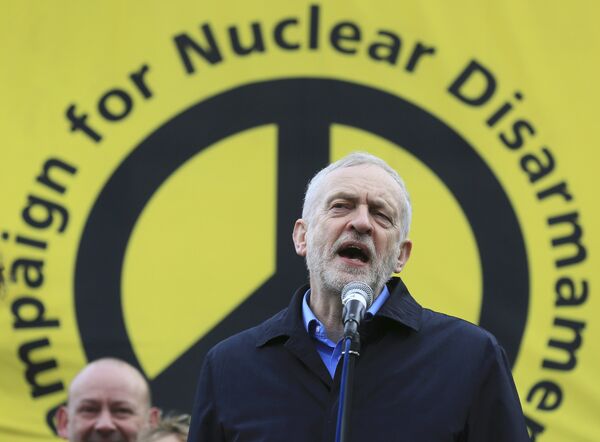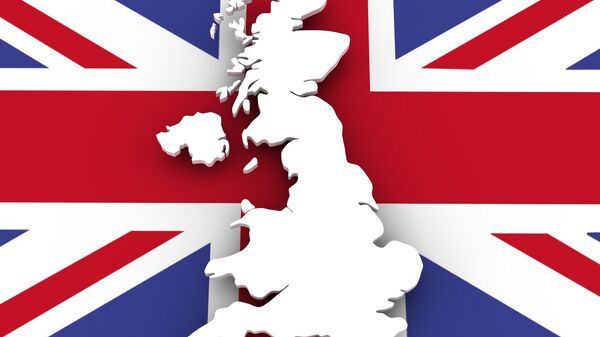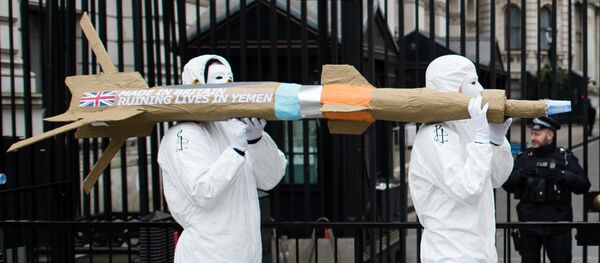The event, which began June 15, is attended by a majority of the world's governments, and is hoped to conclude with the inking of the landmark international agreement by July 7. Setsuko Thurlow, a Hiroshima survivor and disarmament hero, has said he believes the treaty can, and will, change the world.
Humbled to hear Setsuko Thurlow survivor of the Hiroshima atomic blast & importance of nuclear disarmament & looking to atrocity education pic.twitter.com/cGuhno0bl5
— Genocide Prevention (@prev_gen) June 7, 2017
In a statement, the International Campaign Against Nuclear Weapons said anything less than a categorical ban — requiring nuclear-armed countries to destroy their stockpiles in a time-bound, verifiable manner — would fundamentally fail in its objectives.
Despite the talks' boycott by the US, UK and others, the treaty's prospects appear positive. In all, 113 UN member nations voted to convene the talks in December 2016, and some nuclear weapon states appear receptive, or at least not totally opposed, to the prospect, with China, India, and Pakistan all abstaining — and attending the subsequent talks.
US and UK join boycott of UN talks to ban nuclear weapons pic.twitter.com/jnJ2xOO6qU
— Chintuuu! (@mazedaarcat) March 28, 2017
The ban of many forms of weaponry has been proven largely effective — numerous chemical and biological weapons, cluster munitions, and landmines have all been banned, precipitating full-scale decommissioning and disarmament, and their virtual disappearance from military arsenals and battlefields.
The UK's refusal to even attend the talks is puzzling, as a YouGov poll suggests 75 percent of the public is in favor of officials doing so. However, the UK's determination to maintain Trident at all is arguably puzzling in itself.
A 2014 cross-party parliamentary report on Trident was unambiguous — the UK's "independent" nuclear deterrent is in no way independent, and a "hostage to American goodwill."
Moreover, the report's authors suggested Trident would only ever be effective in cases of "nuclear blackmail" — which they acknowledged, the prospects of which would be slim. Their conclusions were also damning of many key myths used to justify Trident's maintenance, and called for UK leaders to step up efforts to promote multilateral nuclear disarmament, and consider further steps to reduce Britain's operational stockpile of nuclear warheads.
"The fact that, in theory, the Prime Minister could give the order to fire Trident missiles without getting prior approval from the White House has allowed the UK to maintain the facade of being a global military power. In practice, it is difficult to conceive of any situation in which a Prime Minister would fire Trident without prior US approval. The USA would see such an act as cutting across its self-declared prerogative as the world's policeman, and would almost certainly make the UK pay a high price for its presumption," the report said.
As the UK is completely technically dependent on the US for the maintenance of the Trident system, presumably one way the USA could demonstrate its displeasure would be to cut off the technical support needed for the UK to continue to send Trident to sea, robbing the country of any nuclear deterrent at all.
"In practice, the only way Britain is ever likely to use Trident is to give legitimacy to a US nuclear attack by participating in it. There are precedents for the USA using UK participation in this way for conventional military operations. The principal value of the UK's participation in the recent Iraq war was to help legitimise the US attack. Likewise the principal value of the firing of UK cruise missiles as part of the larger US cruise missile attack on Baghdad was to help legitimise the use of such weapons against urban targets," the report concluded.
Despite these findings, Trident continues to be deemed fundamental to the UK's security, a particularly hot topic over the course of 2017, given the spate of terrorist attacks that have rocked the country North to South on an almost monthly basis since March.
The reason for Trident's dearth in these matters is obvious — it cannot defend against these attacks, and demonstrably has not done so, whether they are conducted by lone bombers, crazed car and van drivers or knife wielding maniacs. Evidently, such sources of violence pose a far greater threat to the country's security than nuclear weapons — as do cyberattacks, which again Trident seems fundamentally ill-equipped to combat.

The election of Jeremy Corbyn — former Campaign for Nuclear Disarmament Vice President — as Labour leader likely offered much hope to the UK's assorted anti-nuclear campaigners, although they were surely bitterly disappointed when a pledge to renew Trident wormed its way into Labour's election manifesto.
Shame Trident became such an "issue" that Corbyn had to buckle. Even Portillo says Trident & replacement are pointless waste of money. pic.twitter.com/1rnASnYkn6
— Paul Madley (@onepablo) June 18, 2017
Corbyn's seeming slippage may be attributable to the unending chorus of Conservative broadsides launched at him on the issue ever since his election in September 2015 — a wave that reached a crescendo when Defense Secretary Michael Fallon suggested Corbyn wasn't up for the job of Prime Minister due to his refusal to launch a pre-emptive nuclear strike against a "hostile" nation.
Moreover, there are clear suggestions the UK public doesn't hold Trident in such high affinity as the country's ruling class — a July 2016 poll demonstrated that while 51 percent backed full renewal of the system, 49 percent opposed maintaining any system. In time, a greater swath of the populace may come round to the view that the UK's need for a nuclear, as destructive as it is illogical, is non-existent.





